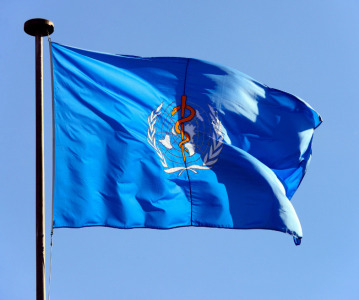European Medicines Agency enhances cooperation with EU drug-monitoring agency on psychoactive and abused medicines
The exchange of information on new psychoactive substances and abused medicines has been enhanced today, thanks to an amended working arrangement signed in Lisbon by the directors of the European Medicines Agency (EMA) and the European Monitoring Centre for Drugs and Drug Addiction (EMCDDA).
The exchange of information on new psychoactive substances and abused medicines has been enhanced today, thanks to an amended working arrangement signed in Lisbon by the directors of the European Medicines Agency (EMA) and the European Monitoring Centre for Drugs and Drug Addiction (EMCDDA).
Today's update to the arrangement, which was first signed in 2010, reflects the new pharmacovigilance legislation, which states that the EMA and the EMCDDA ‘shall exchange information that they receive on the abuse of medicinal products including information related to illicit drugs’.
The EMA will now inform the EMCDDA of any validated signals of suspected side effects of medicines that are related to drug abuse. A signal is information on a new or known adverse event that is potentially caused by a medicine and that warrants further investigation. A signal is validated once the data have been reviewed and enough evidence found to justify further analysis.
Today's arrangement strengthens the agencies’ information-exchange practices and will help them respond in a more timely manner to potential public-health threats.
The EMCDDA is a European Union (EU) agency that exists to provide the EU and its Member States with a factual overview of European drug problems and a solid evidence base to support the drugs debate. The EMA and the EMCDDA have worked closely together since 1997, when they began exchanging information on and assessing the risks of new synthetic drugs in Europe.
Other features of today's arrangement include the exchange of expertise via consultations, projects and meetings and the possibility for the EMA to consult the EMCDDA when defining risk-management plans for selected medicines.
Related News
-
News Pharmaceutical industry supports COP28 health stance in joint statement
As COP28 takes place over this week in Dubai, UAE, several bodies in the pharmaceutical and health industries have come together to announce support of key movements in sustainability in the sector, and to recognise sustainability as a health issue.&nb... -
News Biden backs Cold-War measures to shore-up medical supply chains
In a recent strategy to combat rising inflation and the cost of living crisis, President Joe Biden has invoked a Cold War-era act to increase investment in a selection of medicines and supplies. -
News CPHI Podcast Series: What does the changing US Pharma market mean for industry and patients alike?
In this week's episode of the CPHI Podcast Series Lucy Chard, Digital Editor for CPHI Online is joined by James Manser to discuss the political and market changes in the US pharma field. -
News Which 10 drugs are open to price negotiation with Medicare in the USA?
The Centres for Medicare & Medicaid Services, under the Biden administration in the USA, has released a list of the 10 drugs that will be open to price negotiations as part of the new legislation under the Inflation Reduction Act (IRA). -
News 10 Major Drug Approvals So Far in 2023
Last year, 37 novel drugs were approved by the FDA, this was a high number for such a category, and covered many fields including oncology, demonstrating how promising further research is, and how it is only continuing to build. To date, there are alre... -
News Novartis agrees for copies to be made of cancer drug to reach poorer countries
Novartis signs agreement with MPP to have generics of it's leukemia drug made so that it can be more easily distributed to the world's poorer countries. -
News CPHI Podcast Series: outsourcing and manufacturing trends
Listen to the CPHI Podcast Series this June to hear Gil Roth of the PBOA speak with Digital Editor Lucy Chard about the biggest trends and topics to watch in pharma outsourcing and manufacturing at the minute. -
News New WHO health emergency guidelines expect full transparency from Big Pharma
The WHO are proposing a new set of pandemic guidelines to set out how future global health crises should be handled.
Position your company at the heart of the global Pharma industry with a CPHI Online membership
-
Your products and solutions visible to thousands of visitors within the largest Pharma marketplace
-
Generate high-quality, engaged leads for your business, all year round
-
Promote your business as the industry’s thought-leader by hosting your reports, brochures and videos within your profile
-
Your company’s profile boosted at all participating CPHI events
-
An easy-to-use platform with a detailed dashboard showing your leads and performance







